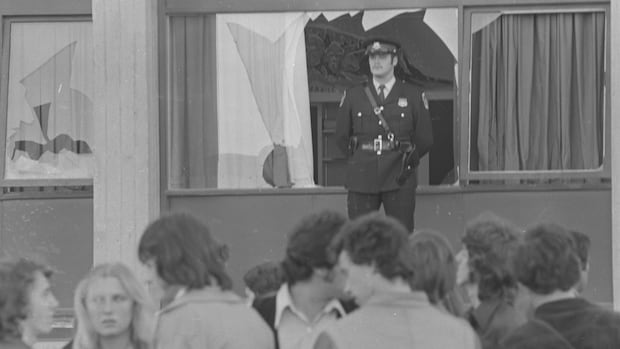Four McGill University faculty associations representing more than 500 academics have filed a court challenge against Quebec’s Bill 89, arguing the provincial legislation violates the constitutional right to strike.
The Confederation of Faculty Associations of McGill (COFAM) announced Tuesday the groups filed an application for judicial review in Quebec Superior Court, seeking to overturn the law — declaring Bill 89 unconstitutional and invalid as of the date it was passed.
The bill was adopted May 29. It gives the provincial labour minister broad powers to restrict strikes deemed harmful to the public.
“This legislation represents a frontal attack on workers’ fundamental rights,” said Evan Fox-Decent, a law professor and president of the Association of McGill Professors of Law, in a COFAM news release.
Fox-Decent notes the Supreme Court of Canada’s 2015 ruling in Saskatchewan Federation of Labour, which found the right to strike has been recognized as the “irreducible minimum” of freedom of association.
“Bill 89 attempts to overturn this constitutional protection,” he said in the news release.
Barry Eidlin, vice-president of the Association of McGill Professors of the Faculty of Arts, said in the news release the law risks allowing the government to impose service requirements on universities during labour disputes, threatening academic independence.
“As university faculty, we have a particular responsibility to defend constitutional rights and the rule of law,” says Eidlin, who specializes in labour movements.
In an interview with CBC News, Eidlin says this law is dangerous from a labour relations perspective because it “erodes the very foundation on which collective bargaining occurs in Quebec.”
For meaningful bargaining to exist, the parties need to be on a level playing field, he said.
Employers have many tools at their disposal to leverage their power over workers, while workers have only one tool at their disposal — the power to collectively withhold their labour, he explained. Taking away that leverage skews the playing field in favour of the employers.
“It removes the incentive of the employer to actually reach an agreement, because they know they have a trick up their sleeve,” said Eidlin, adding that employers can drag out their process until the employees are ordered back to work.
The four associations involved in the legal challenge include the Association of McGill Academic Staff of the School of Continuing Studies, the Association of McGill Professors of the Faculty of Arts, the Association of McGill Professors of Education and the Association of McGill Professors of Law.
“This is about protecting fundamental labour rights for all Quebec workers,” said Margaret Levey, president of the continuing studies association, in the news release.
Back in February, when Quebec Labour Minister Jean Boulet tabled Bill 89, he said it was inspired by recent, long-lasting strikes like the labour conflict that lasted years at the Notre-Dame-des-Neiges cemetery that resulted in human remains being unearthed by animals. It caused major delays for mourners trying to bury their loved ones.
He also cited the hypothetical situation of an education strike preventing services to children with special needs. Boulet said strikes involving ferries, food transportation and school transit in Quebec were other examples that led his office to draft the bill.
Boulet said he wanted Quebec to have similar powers to the federal government, when it forced a return to work for striking Canada Post workers.






